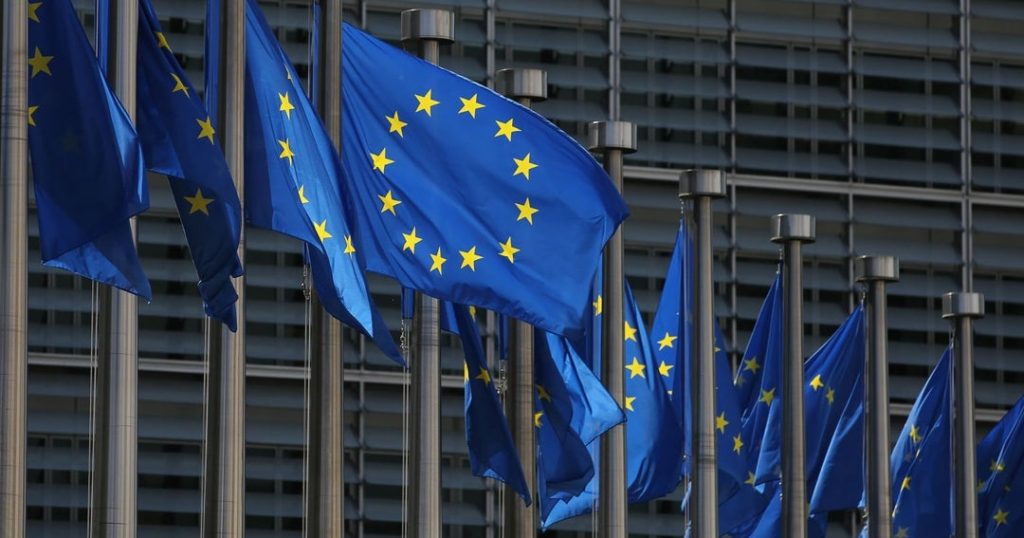The European Comission today opened its first investigations for non-compliance with the Digital Markets Law (LMD), just two weeks after the entry into force of the new community regulations, designed to limit the power of digital giants. The five files affect Apple, Meta and Alphabet (Google's parent company), three of the five American Big Tech companies.
“We suspect that the solutions these three companies have adopted do not comply with the law,” said Margrethe Vestager, Vice President of the EU.
European authorities are examining whether the practices of Apple and Google They favor their own app stores by limiting developers' ability to direct users to cheaper options outside of their platforms. Brussels understands that these behaviors contravene digital regulations, which require that these giants allow developers to communicate freely with their users and promote their offers outside the ecosystem of these two giants.
Likewise, it will be investigated whether Apple is fulfilling its obligation to allow its users to easily uninstall applications in the iOS operating system (for example, Photos) and change default settings on their devices. In the case of Google, It will also be investigated whether the company favors its services, such as Google Shopping, Google Flights and Google Hotels, over rival offerings.
In the case of Meta, its model is being investigated for European Facebook and Instagram consumers, which requires paying a subscription if you do not want to receive personalized advertising. Brussels understands that this formula does not offer real choice to users.
“The LMD is very clear: gatekeepers must obtain users' consent to use their personal data in different services. And this consent must be free. We have serious doubts that this is the case when you are faced with a binary choice,” said Thierry Breton, Commissioner for the Internal Market. “Users who do not give their consent should be offered a less personalized alternative to the service, for example financed by contextual advertising, but they do not have to pay” has defended
The Commission aims to conclude these investigations within twelve months. The Digital Markets Law collects fines of up to 10% of the annual global business volume in case of non-compliance, a figure that can rise up to 20% in case of repeat offense.
“These are serious cases,” said Margrethe Vestager, Vice President of the EU. “We will continue to use all available tools in the event that any gatekeeper attempts to circumvent or undermine the obligations of the LMD. It is important that we achieve the objectives of the regulations, so that consumers benefit from open and competitive markets,” he said. she.
Vestager has stressed that the opening of these processes does not mean that the Commission “supports the rest of the measures implemented by the gatekeepers that are not the subject of investigation”, which opens the door to future files against these digital giants. In fact, he pointed out that Brussels has ordered today that certain documents be preserved that will allow access to “relevant evidence” in its current and future investigations.
These orders, covered by the LMD, “go beyond the investigations that we opened today, and specify what type of documents Alphabet, Amazon, Apple, Meta and Microsoft will have to keep,” he noted. These five companies, along with the Chinese ByteDance (owner of TikTok), were designated in September 2023 as gatekeepers under the LMD.
Breton has indicated that the Commission is analyzing other practices in a preliminary phase. Brussels is checking whether Amazon complies with the obligation not to favor its own brand of products over rival offers in its online store. Likewise, the Commission has “many questions” about the model that Apple has announced for its application store in Europe.
Among other issues, it examines the new commission structure that applies to developers who offer their applications outside of the App Store.
The affected companies have defended their practices. Apple considers that its plan complies with the new community regulations and emphasizes that it has taken into account the suggestions from Brussels. Google has stressed that it has made significant changes to the way its services work in Europe and that it will continue to defend its proposal. Meta, for its part, advocates its offering of a paid model as an alternative to the free ad-supported service.



